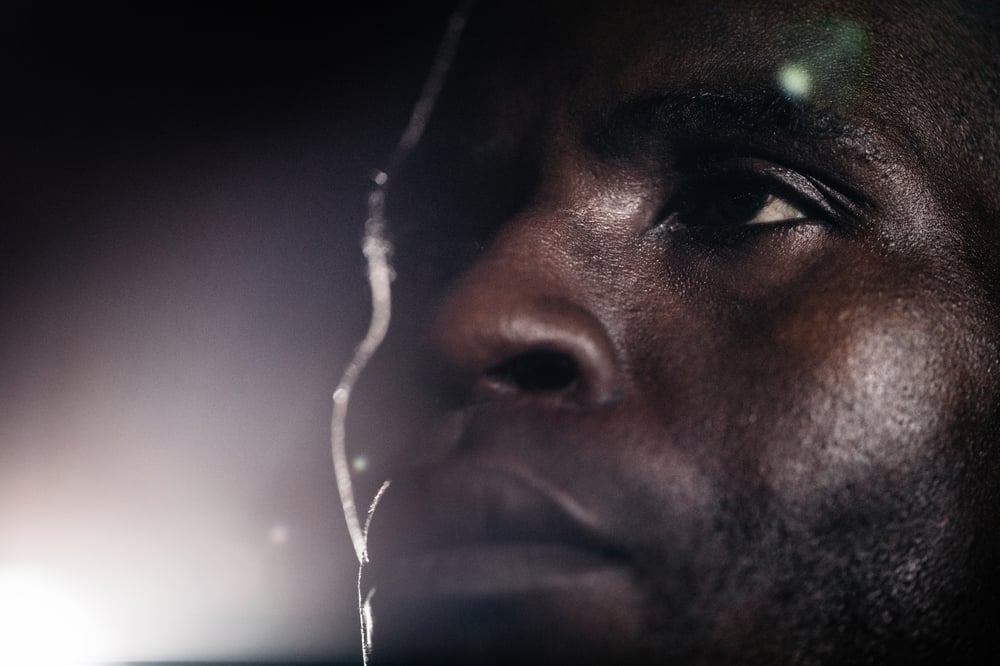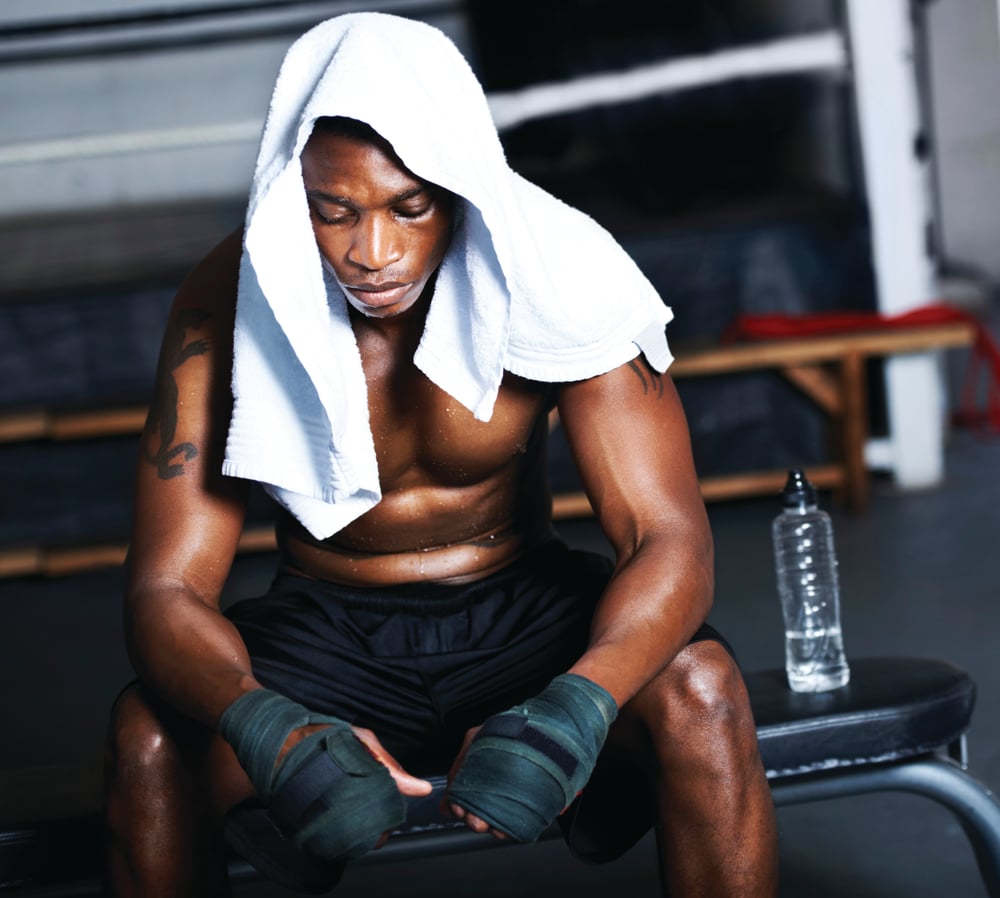
Issue 209
September 2024
Ray Klerck teaches you how to learn how to predict MMA winners with critical insights on weight, fighting styles, and pre-fight psychology in this ultimate cheat sheet.
Picking a winner in MMA can be finding a needle in a haystack if the hay is on fire and the needle is glass. At first, it may seem as though looking at figures around strike rates, grappling stats, or age can give you the upper hand, but bet on them, and you’ll often be left eating a dinner of sausages seasoned by sadness. Playing favorites doesn’t always work, either, especially when you consider that underdogs win 32% of their UFC bouts. Fortunately, new research in The Sport Journal has just handed us something that’s pretty close to a cheat sheet. It turns out that winning in the Octagon isn’t just about how hard you hit. Instead, weight and fighting styles play a massive role in determining knockout, decision, and submission outcomes. Armed with this knowledge, we’re here to break down the traits of a winner so you have the best chance of impressing your crew by calling the fight before it even begins.
THE POWER OF WEIGHT
There’s a reason all combat sports have weight classes: weight wins. The heavier guy often comes out on top, and that fact stretches beyond trying to make the weight cut at a weigh-in. Everyone knows this. The Sport Journal research shows that heavier fighters are more likely to win by KO/TKO. Why? Because carrying that extra mass means those punches land with significantly more force. There are plenty of fighters who have used this to their advantage over the years. Yoel Romero would cut to 185lb and then rehydrate to 205lb. Even though Conor McGregor seemed more like a natural middleweight, he regularly cut to 145lb to dominate that division in his prime. However, it’s not just the weigh-in vs fight-night size differential - it’s how fighters use the extra heft. Heavier fighters who can move well and don’t gas out early tend to dominate. That doesn’t mean smaller fighters in their weight divisions don’t stand a chance—they just have to play a more tactical game. If you’re betting on a heavier fighter with good cardio and striking skills, you’ve got a solid prediction on your hands. So, don’t just look at the weigh-ins. Instead, watch how they’ve previously carried that rehydrated weight inside the cage. Heavy hands win fights, but intelligent movement keeps fighters in the win column.
STRIKER OR A SUB WIZARD?
Part of MMA’s intrigue is that not all fighting styles are created equal, especially when it comes to predicting a winner. Somewhat predictably, the study found that strikers are most likely to deliver knockout blows, while submission specialists are more likely to make their opponents tap. This information sets up every fan’s favorite game of MMA Rock-Paper-Scissors. Striker beats grappler with a KO. Grappler beats striker with a choke. True MMA specialists have the potential to beat either with a cheat code. But here’s where it gets interesting—strikers and MMA fighters perform best when they stick to what they know. If you see a knockout artist trying to play on the ground with a jiu jitsu black belt, it’s usually a highlight reel recipe – for their opponent. So, when picking a winner, always check if a fighter was able to stay in their lane across their last few fights when they came up against someone who had skills they lacked. Even though you hope they’ll hit different, the statistics suggest they probably won’t.

PRE-FIGHT STARE DOWN PREDICTIONS
You may believe winners carry themselves differently and can often tell who will dominate just by watching their pre-fight body language. Fighters who look confident, with relaxed shoulders, steady eyes, and fluid movement, are believed to be a step ahead. It’s all about letting off that ‘I’ve already won’ vibe. Conversely, a fighter who seems tense, stiff, or too jittery might be mentally beaten before they’ve thrown a punch. While that may seem a little obvious, according to a study by Czech researchers at Charles University, it's a cerebral parlor trick that’s overly simple. They found that while fans could spot fighters with higher anaerobic performance based on their facial features, their guesses weren’t any good at predicting the fight outcomes. The research took 360-degree headshots of 44 MMA fighters and compared them to fighter performance data like strength, lung capacity, and MMA scores. Heavier fighters with better anaerobic capacity tended to look tougher, kind of a face like Merab, but there was no solid link between perceived toughness and wins. So, while you might think you can pick a champion just by the confident aggressiveness of their stare-down, it’s probably better not to judge a book by its cover.
WHAT DOES THEIR CREW LOOK LIKE
Success is more than just physical abilities because it often comes down to the strength of a fighter’s network. A study by the British Psychological Society found high achievers, from athletes to CEOs, usually credit their success to two key factors: a winning attitude and personal support from someone who always believed in them. Champions are no different, relying on an unwavering belief in their ability to succeed and the mental toughness to bounce back from setbacks. According to the study, winners tend to possess a mix of determination, focus, and ambition, traits that push them to surpass challenges both inside and outside the Octagon. And it’s not just personal resilience—many fighters are driven by significant life events, both positive and negative, that shape their careers. Whether it’s a coach in their corner or a life-changing moment, the psychological edge often makes the difference between winning and losing, so check their social media flows. If they’re traveling with the same trusted tribe of support who they rolled with to their previous victories, then they’ll probably be in an excellent place to give their best. After all, plenty of strategic advantages can be gained from hearing a familiar voice in their corner when they’re in a bad spot. If the people and elements of their support network are absent to the point where their corner is more of a skeleton crew, then they may not deliver their best.

CLEAR YOUR MIND
Picking a winner in MMA can be like drinking the magic 8-ball liquid and expecting to see the future, then feeling like you’re about to die, and it happens. If you really want to predict the next winner, you may need to clear your mind—literally. Researchers from University College London found training your brain on idealized data rather than real-world outcomes can sharpen your ability to pick a winner in a fight. In their study, participants were shown matchups where the highest-ranked athlete always won, creating a perfect (but fictional) scenario. Those who trained with this ‘clean’ data outperformed others who saw accurate results, where unexpected outcomes often cloud judgment. People improved their decision-making and predictive skills by avoiding the brain's tendency to rely on faulty, messy memories. Whether you’re sizing up the main event or analyzing fight records, training your brain with a highlight package of each fighter’s victories is probably the best data you can use. Only focus on their highlights, not the low lights. It could give you the edge in predicting who’s getting their hand raised without needing to be a human algorithm.

PICKING A WINNER
Predicting an MMA winner takes a mix of understanding weight dynamics, fighting styles, mental toughness, and even the support network behind the fighter. While there’s no perfect formula, combining these insights with a clear, data-driven mindset can give you a significant edge. Whether betting, spectating, or just trying to impress your friends, knowing what to look for can help you call the fight before the first calf kick lands. So, remember these factors—you might pick the winner before the experts do and get your hand raised as the boss who called it! Well, maybe.










